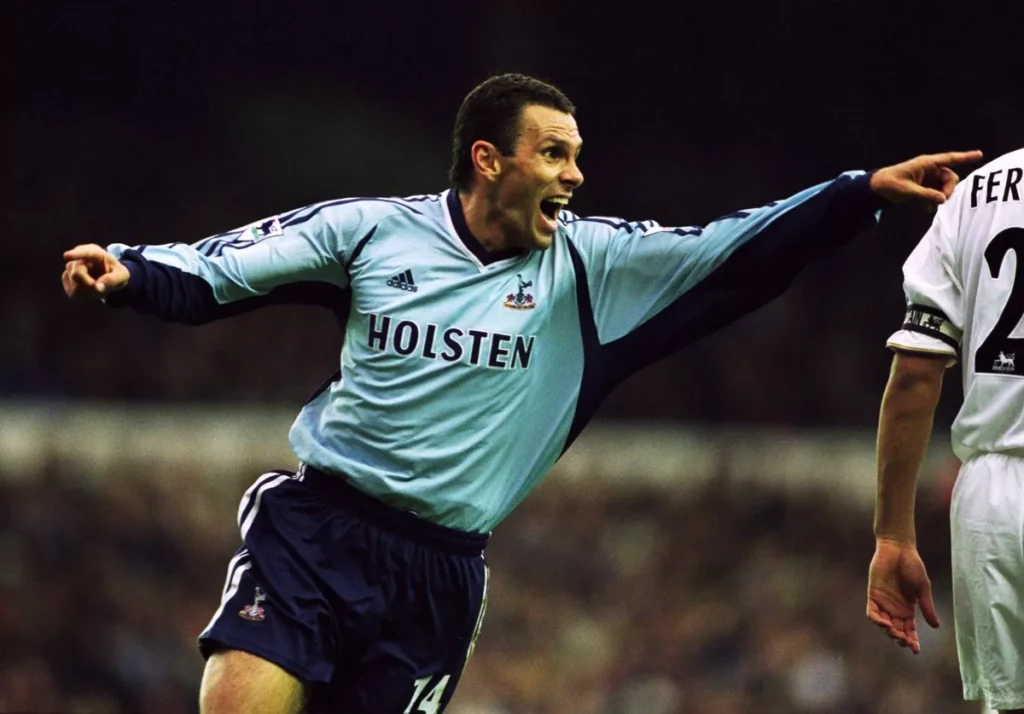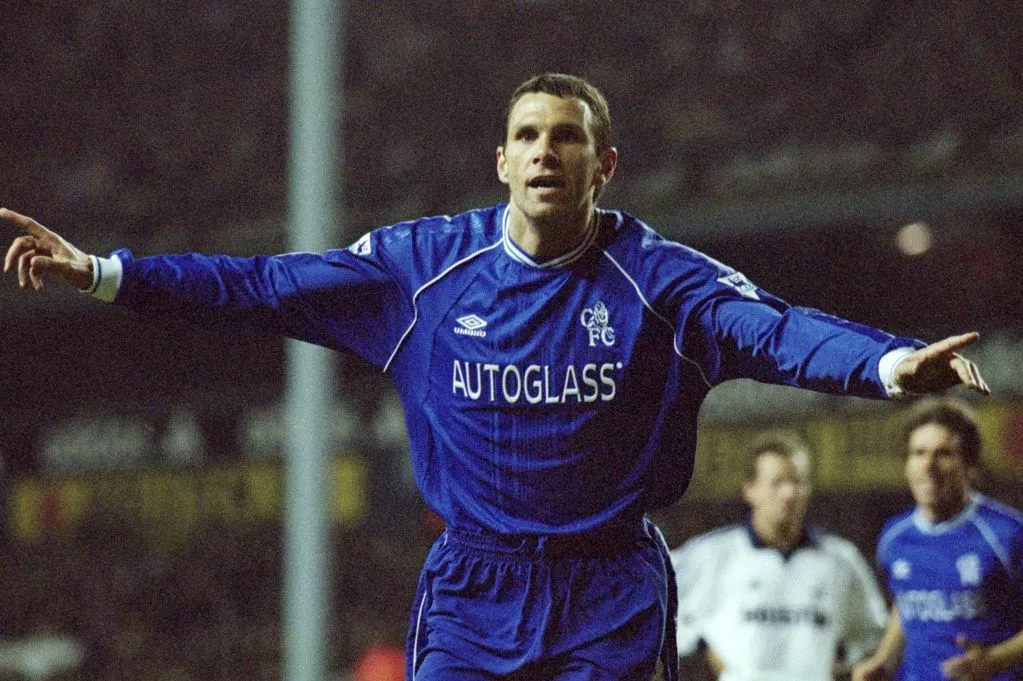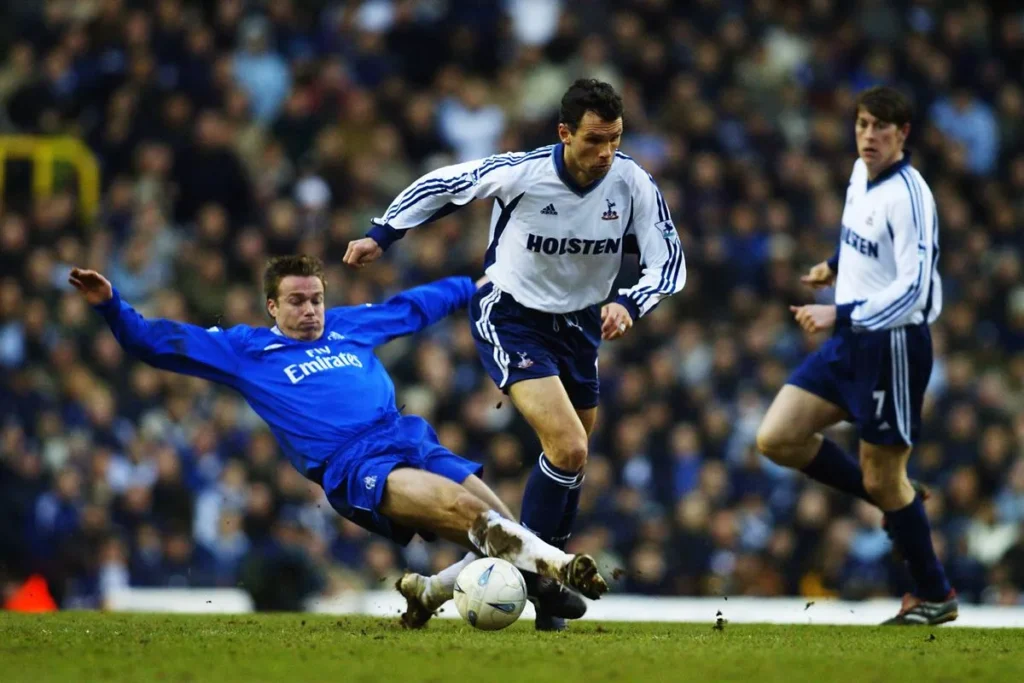Gus Poyet has admitted that leaving Chelsea for Tottenham Hotspur was one of the most naive decisions of his football career.
The former Uruguayan midfielder, who is now managing Jeonbuk Hyundai Motors, opened up about the circumstances that led to his controversial move across London a decision that changed the way many Chelsea fans viewed him forever.
Poyet joined Chelsea in 1997 and quickly became a fan favourite, admired for his work rate, technical ability, and knack for scoring crucial goals. During his four years at Stamford Bridge, he played 144 matches, scoring 49 goals and assisting 16 times.
His time at Chelsea was filled with success he won the FA Cup, the UEFA Cup Winners’ Cup, and the UEFA Super Cup, all within a few seasons. However, his journey at the club took an unexpected turn when Claudio Ranieri arrived as manager.

Ranieri’s appointment marked the start of a new era at Chelsea, one that saw several long-serving and popular players moved on. Dennis Wise, the club captain for more than a decade, was among those who left, and soon after, Poyet followed.
Tottenham offered around £3 million for the Uruguayan midfielder in 2001, a deal Chelsea accepted despite his continued fitness and willingness to play.
Reflecting on his departure, Poyet later revealed that he felt he had little control over the situation. Speaking to the Evening Standard in 2012, he said, “I still have a strong feeling for Chelsea.
I played in a very good team, we controlled most games, and we won big trophies both in England and in Europe. It was one of the best periods of my career. I took a lot of criticism from Chelsea supporters for joining Tottenham, but I had to stay in London for my children’s education.
I was a victim of Ranieri’s changes. I had a year left on my contract and was still fit, but the manager didn’t think I could play every week.”
Despite his affection for Chelsea, Poyet admitted he didn’t fully grasp the intensity of the rivalry between the two clubs when he made the move. “I knew I was joining a rival club, but I didn’t see it that way,” he said.

“When I thought of London rivalries, I thought of Tottenham and Arsenal. Maybe now people add Tottenham and Chelsea, but back then, it didn’t feel like one of the biggest rivalries. I only realised how serious it was after seeing the reaction from Chelsea fans. They asked how I could do it and said I was betraying them.”
Years later, in an interview with Full Circle with Bet365, Poyet admitted that he had been “very naive” about the situation. “I swear, I had no idea how close the two clubs were or what the reaction would be.
When I was at Chelsea, the teams we really wanted to beat were Arsenal and Manchester United they were the ones winning titles. Spurs weren’t a main focus for us. In fact, we had a stronger rivalry with Leeds at the time because of our shared history. We used to beat Spurs regularly, so it didn’t seem like a big deal.”
When the offer came in from Tottenham, Poyet saw it as a practical choice. He wanted to stay in London and play regularly, and Glenn Hoddle, Spurs’ manager at the time, played a key role in convincing him. “I had a few offers from abroad,” he recalled, “but I wanted to stay close to my family.

Spurs seemed like the best option, but once the move was announced, it was chaos. I didn’t realise what I’d done. The reaction was crazy. Only then did I understand the rivalry it was madness.”
Despite the backlash, Poyet threw himself fully into his new role at Tottenham. He was determined to prove his professionalism and give his best for his new club, even if it meant playing against the team he once loved.
“As much as I cared about Chelsea, my character meant I had to give everything for Spurs,” he explained. “The first couple of games against Chelsea, we lost, but eventually, we beat them on the third attempt. That win was strange emotional, yes, but also satisfying as a professional.”
Poyet’s story remains one of the most intriguing examples of a player crossing the London divide. His honesty about being “naive” and his admission that he underestimated the rivalry gives fans a rare glimpse into how footballers sometimes make decisions based on practical reasons rather than emotional ones.
Yet, his reflection shows that the game’s emotional side the loyalty, the fan reactions, and the sense of belonging can never be ignored.
What started as a professional move turned into a lesson about passion and rivalry in English football, one that Poyet still remembers vividly to this day.